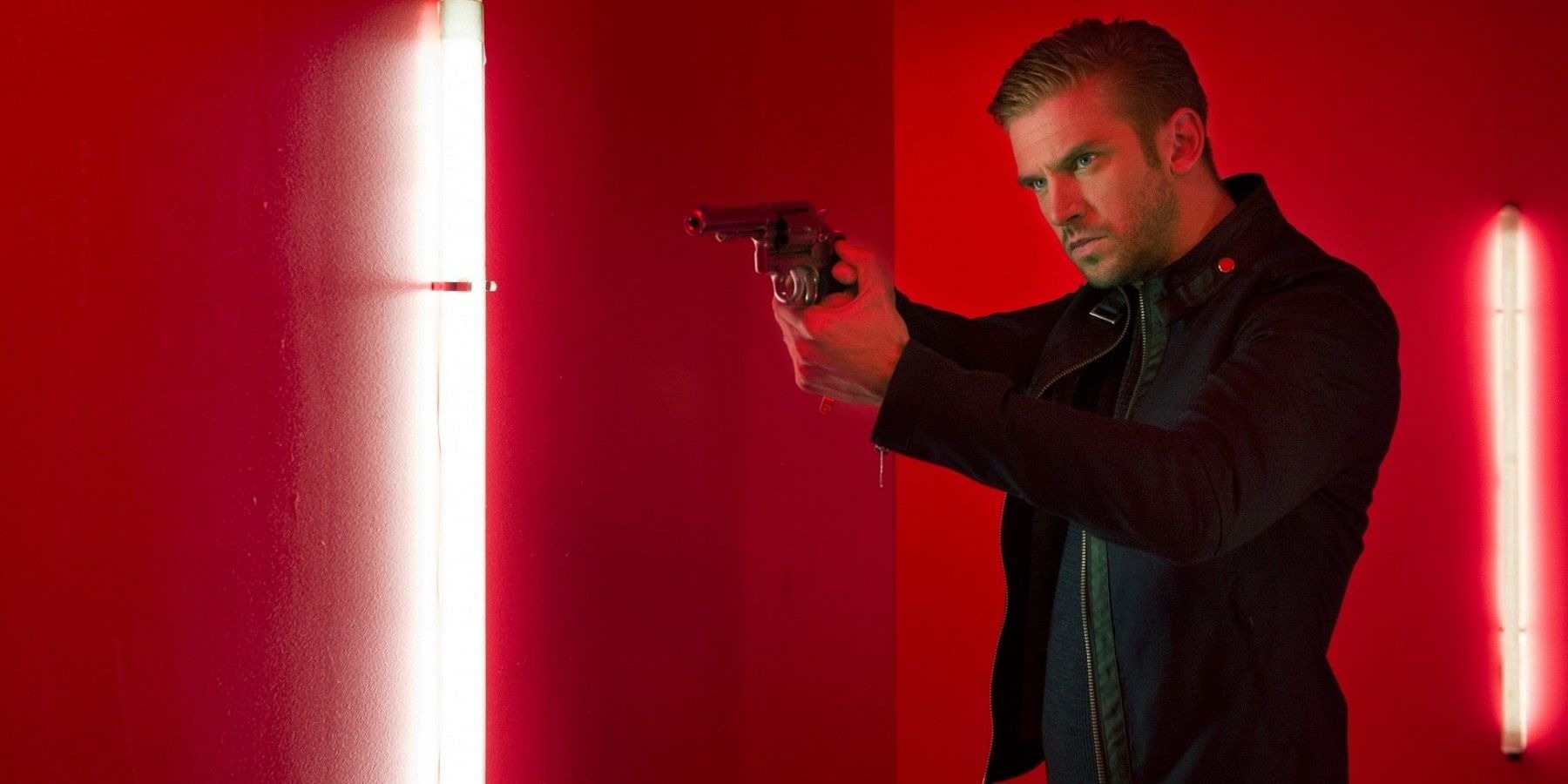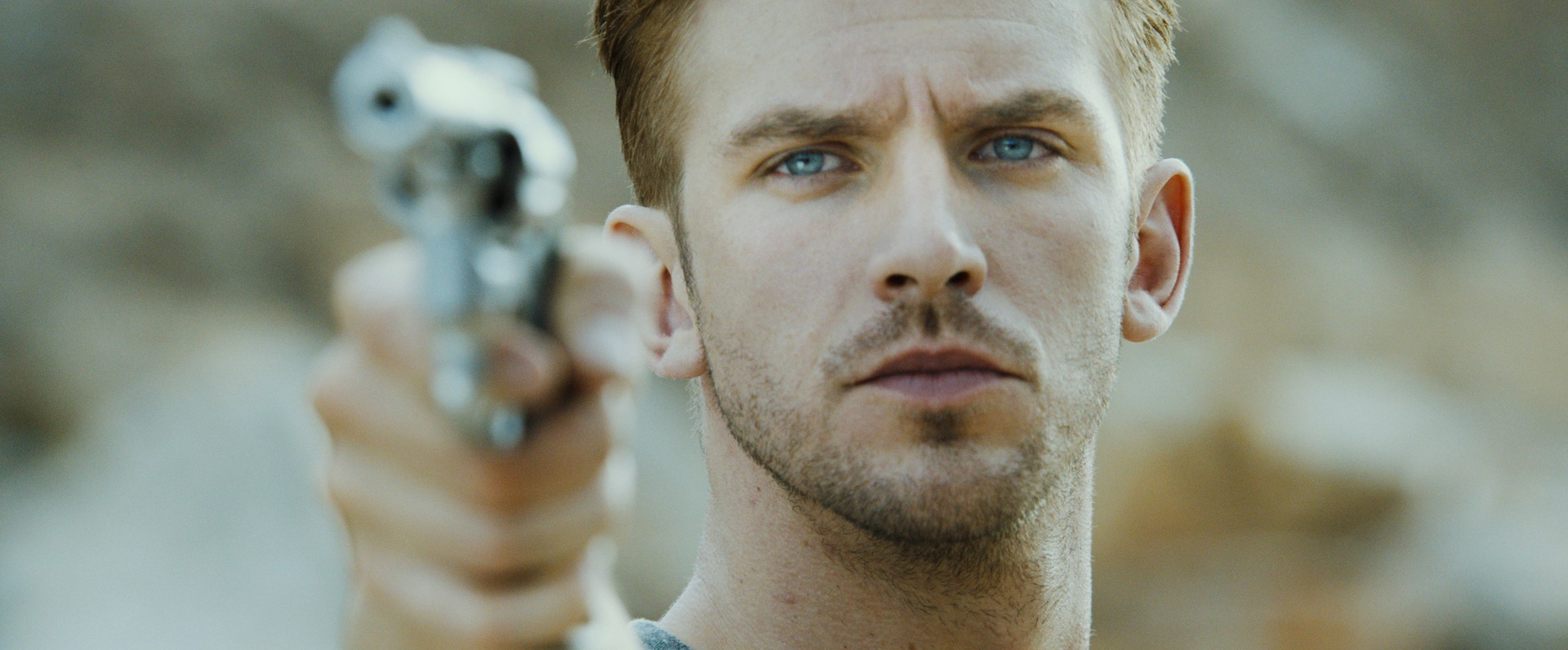The intricate story of The Guest has left many viewers seeking clarity, particularly regarding its conclusion. The filmmakers have chosen to keep David’s true identity shrouded in mystery, which aligns with the film’s nature as an amalgamation of classic genre films featuring a faceless, relentless pursuer.
This creative choice leverages the audience’s fear of the unknown, fitting within what the director describes as the “strange visitor” sub-genre. The deliberate obscurity surrounding David’s character heightens the tension throughout the film.

As the film comes play, it becomes evident that David Collins (Dan Stevens) and Caleb Peterson share a past rooted in their military service, having been subjects of a neurological experiment orchestrated by a private military corporation.
Following Caleb’s death, he entrusts David with the responsibility of checking on his family. However, David has ulterior motives and swiftly integrates himself into the Peterson household, where his presence leads to dire consequences unbeknownst to them.
Anna (Maika Monroe), Caleb’s sister, harbors suspicions about David’s true nature, a realization that emerges in the film’s climax.
The Guest Gives a Friendly Face to a Faceless Horror
David’s façade crumbles as he brutally murders Anna’s parents, setting off a deadly pursuit of her and her brother, Luke (Brendan Meyer).
When Anna encounters Major Carver (Lance Reddick), the orchestrator of the experiment, she learns that David was presumed dead alongside the other test subjects—soldiers programmed to hide their identities.
Tragically, this experimentation has turned David into a merciless entity, compelled to eliminate anyone who threatens to reveal him, including the Peterson family.
The question of whether The Guest will receive a sequel has been raised, with discussions about The Guest 2 in the air, yet no developments have emerged since the film’s release nearly ten years ago.
Anna and Luke find themselves triumphant in their confrontation with David at a local high school; however, an EMT tending to Anna in an open ambulance reveals a chilling twist:
David is alive and has disguised himself as a firefighter. This unexpected conclusion may seem dissonant within the genre but resonates deeply with director Adam Wingard’s intention of creating a homage to horror and action films from the 1980s, particularly Halloween.
Wingard expressed in an interview with Grantland his desire to merge the aim of Halloween with The Terminator, posing a provocative question: “What if Michael Myers, instead of being a distant shapeless figure, lived under your roof?”
In The Guest, the traditional faceless killers emblematic of slasher films are supplanted by Dan Stevens’ disarming charm, which serves as a deceptive mask, keeping his true self hidden.
The central theme emphasizes the chilling horrors that can dwell beneath the seemingly benign aspects of daily life. Audiences often anticipate that monstrosities will manifest in predictable forms, embodied by well-known horror icons.
However, the film suggests that presenting horrors with a friendly demeanor can evoke an even more profound sense of fear.
How The Guest Ending Makes David a Tragic Villain
David stands as the embodiment of horror in The Guest, yet his character diverges from the archetypal slasher villain, portraying him as a tragic figure. Unlike the slasher icons of the 1980s who acted on twisted impulses, David is stripped of free will due to the experiments he endured.
While this distinction might not alleviate the horror of his actions, it does render him a more tragic character than those he mirrors.
This aspect allows The Guest to differentiate itself from classic thrillers by highlighting how large-scale institutional horrors can manifest into deeply personal tragedies that impact lives.
The Meaning Of The Guest Ending
The film concludes with a cloud of ambiguity, as David remains alive while the Peterson family continues to face danger. Speculation about a sequel has circulated since the film’s debut, although no concrete plans have materialized.
While a follow-up might clarify the story’s result, audiences are left to ponder their interpretations, many of which veer towards darker conclusions.
During the climactic struggle, Luke seemingly kills David by stabbing him. David’s final words, “You did the right thing, I don’t blame you,” take the audience by surprise, suggesting a strange ease in his defeat.
The film’s closing moments depict David leaving a burning building while disguised as a firefighter, a sight that Anna recognizes before the screen fades to black. This indicates that David staged his death to escape.
This portrayal reinforces David as a tragic movie monster driven by his conditioning. His programming dictates that he must keep his true identity concealed, and faking his death serves that purpose, allowing him to potentially forge a new life without further bloodshed.
Nevertheless, his history reveals a willingness to kill even those he has grown fond of if necessary to achieve his goals. Anna’s recognition of him in the film’s final scene leaves David with no choice but to continue his violent path.
How The Guest Ending Was Received
The Guest stands out as a horror film that garnered considerable acclaim from critics. With a Certified Fresh score of 92% on Rotten Tomatoes, the film’s reception starkly contrasts the audience’s lower Popcornmeter rating of 69%.

This disparity likely contributes to its box office underperformance, as it failed to recoup its production costs. Audience reactions often criticized the film’s slasher-style conclusion, with some noting, “The well-executed first half of the movie does not compensate for the absurdity of the final 30 minutes.”
Critics, on the other hand, found much to appreciate in the film and its slasher-inspired finale. Scott Tobias from The Dissolve remarked on the film’s ability to blend elements of horror, dark comedy, psychological thriller, and social commentary, which kept viewers as unsettled as the Peterson family throughout a series of chilling revelations.
However, not all reviews were positive regarding the ending. Rex Reed from Observer stated, “The ultimate scene is a disappointing cliché borrowed from countless B movies, including every parting shot of Jason in the fright mask that promises audiences more Halloween sequels on the way.”
Dennis Harvey of Variety shared the sentiment that while The Guest delivers as a thrilling action piece, the homage to horror felt somewhat out of sync. He observed, “The Guest is such nasty fun you might not realize until afterward that David’s real reasons for arriving are never quite clarified.
You may notice immediately, however, that the climax (set in an elaborate haunted house designed for a school Halloween dance) feels a bit ordinary and overly self-conscious as a horror homage, given the punchier material that precedes it.”



